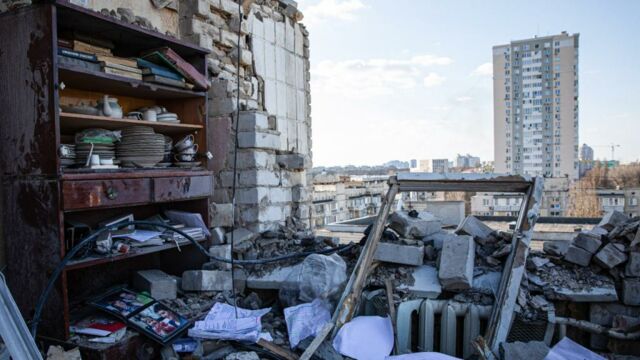On March 16, Joe Biden took a new step in the retaliation against Russia since its invasion of Ukraine. First, he suggested for the first time that Vladimir Putin was a war criminal. He then decided to help Ukraine with $800 million in military equipment.
Discover our latest podcast
In the next few days, Ukraine will receive an additional 800 Stinger anti-aircraft missiles, 9,000 anti-tank weapons, a range of small arms—including machine guns and grenade launchers—and 100 highly effective tactical drones called Switchblade.
The kamikaze drone
Military officials call the weapon, which is carried in a backpack, the 'kamikaze drone' because it can be aimed directly at a tank or group of troops, and is destroyed when it hits the target and explodes. Mick Mulroy, a former assistant secretary of defence, told TheNew York Times:
They were designed for U.S. Special Operations Command and are exactly the kind of weapon systems that can have an immediate impact on the battlefield.
Larger, armed drones, such as the American-made Predators or Reapers, would be difficult for Ukrainians to fly and would be easily destroyed by Russian fighter jets. But former officials said small, portable kamikaze drones could prove a cost-effective way to destroy Russian armoured convoys.
Read more:
⋙ War in Ukraine: The ominous sign that currently adorns Russian tanks
⋙ War in Ukraine: This photo of an armed girl is not what you think
⋙ War in Ukraine: Climate change could be the unexpected enemy of Putin
The difficult task of helping the Ukrainians
Since the beginning of the conflict, it has been difficult for Europe and the United States to gauge how much help to give the Ukrainian people without crossing the line and declaring war on Russia. Allied countries are trying to step up the flow of defensive weapons to Ukraine and help them communicate more effectively by providing more equipment.
The U.S. has said it has provided communications equipment, but Ukraine has responded that it wants more, including tactical radios and jamming equipment to prevent Russian forces from communicating with each other.
This article has been translated from Gentside FR.















